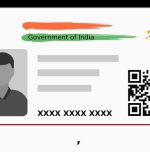Things That Will Make You Look Unprofessional In Your Job Search

There are several other things that could negatively impact the impression you make with a hiring manager.
In case you’re employment seeking, you probably know the basic professionalism mistakes to avoid, like using a questionable moniker in your email address, having a senseless outgoing voicemail message or flooding social media with photos of yourself doing keg stands.
But here are some less obvious ways that you can inadvertently come across as unprofessional in your job search.
There are certain things your interviewer simply doesn’t need to know.
People overshare all sorts of things they didn’t set out to share when they get nervous in interviews – or conversely, when they start feeling so comfortable that they let down their guard too much.
In this article you will find some tips that will help you to avoid the things that will make you look unprofessional in your job search:
Trying to conceal it when you don’t know something
If you’re asked a question that you don’t have any idea about the response to, the worst thing you can do is try to bluff your way through it.
Your interviewer is probably going to see through the bluff, and it will reflect more poorly on you than being upfront that you don’t know the answer.
Being comfortable acknowledging when you don’t know something is a sign of professional maturity and confidence. Giving potentially wrong information just to cover up a lack of knowledge can be out and out risky on the off chance that you do it after you’re contracted.
Not cleaning your application materials
A periodic error presumably won’t be a big deal once you’re on the job, but employers assume that your job application materials represent you at your absolute best.
If you have links on your resume that don’t work, inconsistent spacing or other sloppiness, employers will read that as evidence of overall carelessness in your approach to work.
You hide who you really are
Getting so concerned with being professional that you become stiff and don’t give the interviewer any sense of who you really are.
If your desire to be professional leads you to become so stiff and reserved that your interviewer can’t get a sense of what you’d be like to work with day to day, that’s a negative. It’s OK – and even desirable – to let some personality show
Not doing your research
You’ve probably heard about the importance of before going into a job interview.
You want to be able to talk intelligently if you asking your interviewer basic questions about the company that can be answered on the employer’s website will make you look unprepared and even lazy.
If you ask, “So what exactly does the organization do?” or other questions that you could answer for yourself with five minutes of research, hiring managers will assume that on the job you’ll be that employee who doesn’t bother to try to find answers on your own before asking others to help you.
Let the interviewer know how you plan to grow with the company and get him thinking that he can’t “believe” he hadn’t the good fortune of meeting you sooner.
Interrupting
At the end of the day, interviewers assume that the you they see during interviews is the best, most polished, most polite version of you.
So, if you interrupt or talk over your interviewer, they’re going to assume that you’ll be the type of employee who thinks you know better than your colleagues, dominates conversations and is generally rude.
Straightforwardly fussing about your last boss
We know that bad bosses are out there, and that it’s very possible you’ve worked for a truly terrible manager or two. But you’re expected to show discretion in an interview, which means no badmouthing previous employers.
Plus, there are two sides to most stories, and you don’t want your interviewer wondering if your boss was as bad as you say or whether you’re just difficult to get along with.
Putting your interviewer on the spot with “hard sell” questions
You might have read that you should end your interview with questions like “Is there any reason you don’t think I’m a great fit for the job?” or “Is there anything standing in the way of me getting an offer?”
But an interview shouldn’t be a high-pressure sales environment, and these tactics will turn off most interviewers.
Your interviewer probably won’t feel inclined to give you a detailed explanation of the ways in which you’re weaker than other candidates, and making your interviewer feel awkward isn’t a good last impression.
Photo by Charlie Firth on Unsplash (Free for commercial use)
Image Reference: https://unsplash.com/photos/3QVod4-_BWo









Leave a Reply